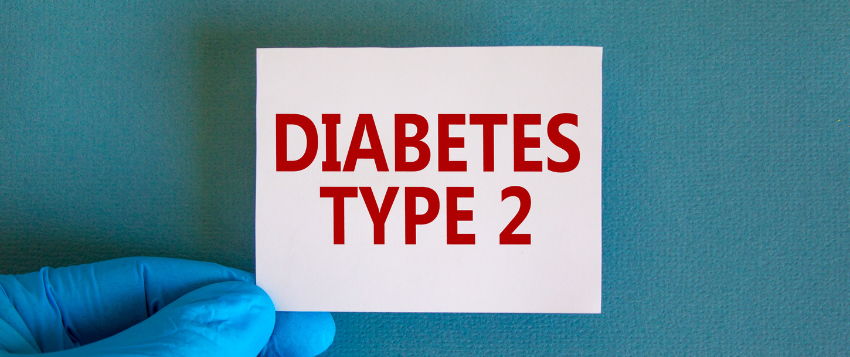Diabetes: A Silent Crisis and the Power of Prevention

Diabetes is a silent epidemic, affecting millions of people worldwide. It is a disease that does not discriminate—young or old, rich or poor, man or woman—anyone can fall victim to it. Yet, despite its prevalence, many still fail to recognise the seriousness of the condition, often dismissing early warning signs until it is too late.
At its core, diabetes is a metabolic disorder that affects the body’s ability to regulate blood sugar levels. While there are multiple forms of the disease, Type 2 diabetes—the most common form—is largely preventable and even reversible through consistent lifestyle changes. But failure to act can lead to devastating consequences, impacting not just an individual’s health but also their quality of life and longevity.
The Types of Diabetes and their Consequences
Diabetes is classified into three primary types, each with its own causes and challenges:
Type 1 Diabetes

This is an autoimmune condition where the body’s immune system mistakenly attacks insulin-producing cells in the pancreas. People with Type 1 diabetes require lifelong insulin therapy because their bodies cannot produce insulin at all. This condition is not preventable and is often diagnosed in childhood or early adulthood.
Type 2 Diabetes

Accounting for nearly 90% of all diabetes cases, Type 2 diabetes is primarily caused by poor lifestyle choices, including poor diet, physical inactivity, and obesity. In this condition, the body becomes resistant to insulin, making it difficult for sugar to be absorbed into cells, leading to dangerously high blood sugar levels. The tragedy? Type 2 diabetes is largely preventable and even reversible in its early stages.
Gestational Diabetes

This form of diabetes occurs during pregnancy and increases the risk of both the mother and child developing Type 2 diabetes later in life. If not managed properly, it can lead to complications during childbirth and long-term health issues for the baby.
The Devastating Effects and Repercussions of Diabetes

Many people mistakenly believe that diabetes is merely a condition that requires “cutting back on sugar.” In reality, the effects of unmanaged diabetes are profound and affect nearly every organ system in the body.
Short-Term Complications
When blood sugar levels are uncontrolled, individuals can experience:
- Extreme fatigue
- Frequent urination
- Increased thirst and hunger
- Blurred vision
- Slow healing wounds and infections
Long-Term Consequences of Uncontrolled Diabetes
When left unmanaged, diabetes leads to life-altering complications, many of which are irreversible.
Cardiovascular Disease

Diabetes significantly increases the risk of heart attacks, strokes, and hypertension. High blood sugar damages blood vessels over time, making it easier for plaque to build up and block arteries.
Nerve Damage (Neuropathy)
Diabetes destroys nerve endings, particularly in the hands and feet, leading to numbness, tingling, pain, and loss of sensation. This often results in serious infections and, in severe cases, amputation.
Kidney Disease (Nephropathy)
High blood sugar puts excessive strain on the kidneys, leading to kidney failure. Many diabetes patients eventually require dialysis or kidney transplants.
Blindness and Vision Problems (Retinopathy)

Diabetes is one of the leading causes of blindness worldwide. High blood sugar damages the blood vessels in the eyes, leading to vision loss over time.
Weakened Immune System
Diabetics are more prone to infections, slow-healing wounds, and complications from minor injuries. A small cut or ulcer can escalate into a life-threatening condition due to poor circulation and immune response.
Cognitive Decline and Mental Health Disorders
There is a strong link between diabetes and an increased risk of Alzheimer’s disease and dementia. Additionally, the stress of managing a chronic condition often leads to depression and anxiety.
How to Prevent and Manage Diabetes Through Lifestyle Changes

The good news? Type 2 diabetes is largely preventable, and in some cases, reversible. The most powerful tools for combating diabetes are exercise and balanced nutrition—both of which can help regulate blood sugar levels, improve insulin sensitivity, and promote overall well-being.
The Role of Exercise in Managing and Preventing Diabetes
Regular physical activity is one of the most effective ways to lower blood sugar levels, improve insulin sensitivity, and promote weight loss. Exercise allows muscles to absorb glucose without the need for excessive insulin, helping to naturally regulate blood sugar.
Best Exercises for Blood Sugar Control

- Cardio Workouts: Brisk walking, jogging, swimming, and cycling improve cardiovascular health and glucose metabolism.
- Strength Training: Lifting weights or resistance exercises help build muscle, which increases insulin sensitivity.
- Flexibility & Balance Training: Yoga and stretching exercises enhance circulation and reduce stress.
Experts recommend at least 150 minutes of moderate-intensity exercise per week for optimal blood sugar management.
The Importance of a Balanced Diet

Food is fuel, but when the wrong fuel is consumed in excess, it can lead to disaster. A balanced diet plays a crucial role in preventing diabetes and maintaining stable blood sugar levels.
Foods That Support Blood Sugar Control
- Lean Proteins: Chicken, fish, tofu, and legumes help keep blood sugar levels steady.
- Healthy Fats: Avocados, nuts, seeds, and olive oil promote heart health.
- High-Fiber Foods: Whole grains, vegetables, and legumes slow down sugar absorption.
- Leafy Greens: Spinach, kale, and broccoli are rich in antioxidants and essential nutrients.
- Low-Glycemic Fruits: Berries, apples, and oranges provide natural sweetness without spiking blood sugar.
Foods to Avoid

- Refined Carbohydrates: White bread, pastries, and sugary cereals cause rapid blood sugar spikes.
- Processed Foods: Fast food and packaged snacks contain unhealthy fats and preservatives.
- Sugary Beverages: Soda, fruit juices, and sweetened coffee drinks are loaded with empty calories.
A well-structured meal plan, combined with portion control, is essential in managing diabetes. Eating small, balanced meals every 3-4 hours prevents blood sugar fluctuations.
The Road to a Diabetes-Free Life

Diabetes is a serious, life-threatening condition, but it is not a death sentence. By making conscious lifestyle choices, individuals can significantly reduce their risk or even reverse the disease in its early stages.
- Start small – Incorporate daily movement into your routine, whether it’s a short walk or a workout session.
- Choose whole foods – Opt for unprocessed, nutrient-dense meals that stabilise blood sugar.
- Stay hydrated – Water helps regulate glucose and flush out toxins.
- Monitor progress – Regular check-ups and blood sugar monitoring can help track improvements.
- Seek support – Diabetes can feel overwhelming, but guidance from healthcare professionals, nutritionists, and fitness trainers can make a significant difference.
The fight against diabetes starts with education, awareness, and action. A commitment to daily exercise and balanced nutrition is not just about preventing disease—it’s about reclaiming your health, energy, and longevity.
If you or a loved one is at risk, the best time to act is now. Your body reflects the choices you make every day. Choose wisely and take control of your health before diabetes takes control of you.
Disclaimer – Healthi and its associates offer health and fitness information and is designed for educational and entertainment purposes only. You should consult your physician or general practitioner before beginning a new fitness program. You should not rely on this information as a substitute for, nor does it replace, professional medical advice, diagnosis, or treatment. If you have any questions or concerns about your health, you should always consult with a physician, general practitioner, or other qualified healthcare professional. Do not disregard, avoid or delay obtaining medical or health-related advice from your healthcare professional because of something you may have read in our publications or lectures. The use of information provided through the urban wellness service is solely at your own risk and is not medical or healthcare advice.
